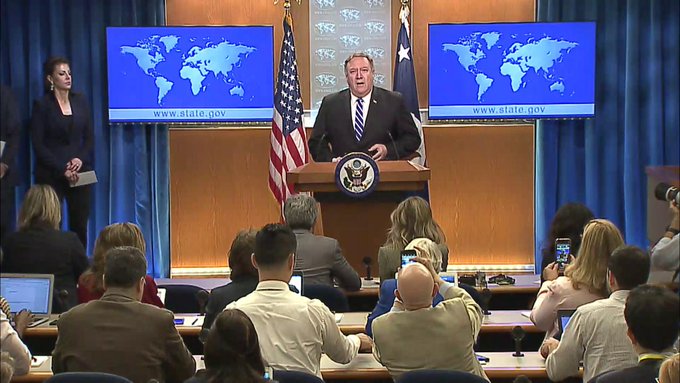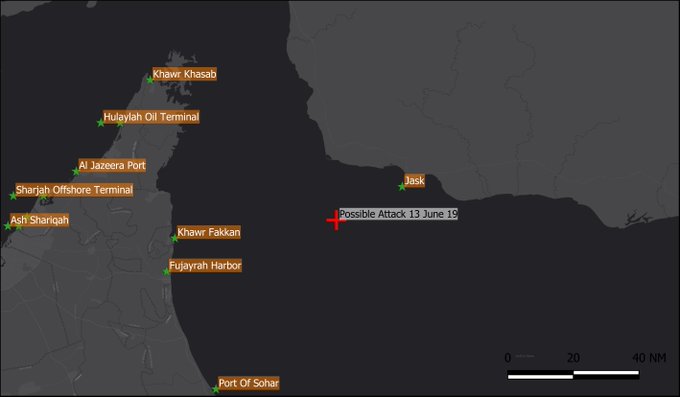Speaking from Washington, D.C., Pompeo said the United States pinned the blame on Iran based on the types of weapons used in the “blatant assault” on the two vessels. He said the attacks are a threat to international peace and represent “an unacceptable escalation of tension by Iran.”
The Navy’s Fifth Fleet said it received two separate distress calls — at 6:12 a.m. and 7 a.m. — regarding the alleged attacks.
“U.S. Navy ships are in the area and are rendering assistance,” said the fleet, which is stationed in Bahrain.
Earlier, British maritime safety group United Kingdom Maritime Trade Operations sent out an alert of an unspecified “incident” occurring in the Gulf of Oman. The group urged “extreme caution” as tensions escalate between the United States and Iran.
Maritime security risk management firm Dryad Global identified one of the tankers as the Norwegian-flagged MT Front Altair, stating it was “on fire & adrift.” The owner denied reports that the tanker had been sunk by a suspected torpedo. It was carrying 75,000 metric tons of petroleum product bound for Taiwan.
The other tanker was identified as Kokuka Courageous, of Bernhard Schulte GmbH & Co KG, Bloomberg reported. It was carrying methanol from Saudi Arabia to Singapore.
“The hull has been breached above the water line on the starboard side,” the company’s website said. “All crew are reported safe and only minor injury reported.”
In all, 43 crew members were rescued from both tankers.
One of the tankers is operated by the Japanese. Japanese Prime Minister Shinzo Abe was visiting Tehran hoping to find a diplomatic solution.
Iranian Foreign Minister Mohammad Javad Zarif called the incident “suspicious” and pushed for a regional dialogue.
The attack occurred near the Strait of Hormuz, a passage point for 20 percent of global oil consumption. The incident comes a month after four oil tankers, two of which were Saudi, were sabotaged in the gulf.
In late May, national security adviser John Bolton blamed Iran for the attack. Tensions in the Middle East have been high following the Trump administration canceling waivers on April 25 that allowed countries to buy Iranian oil without violating sanctions. In apparent retaliation, Iran partially withdrew from a landmark six-nation nuclear accord.
Oil futures climbed 4 percent following news of the incident, from a near five-month low, Bloomberg reported.










